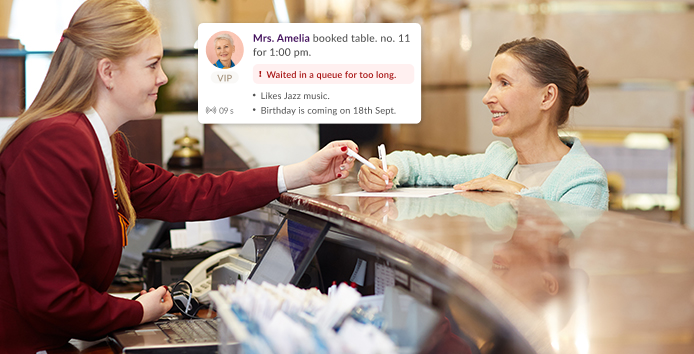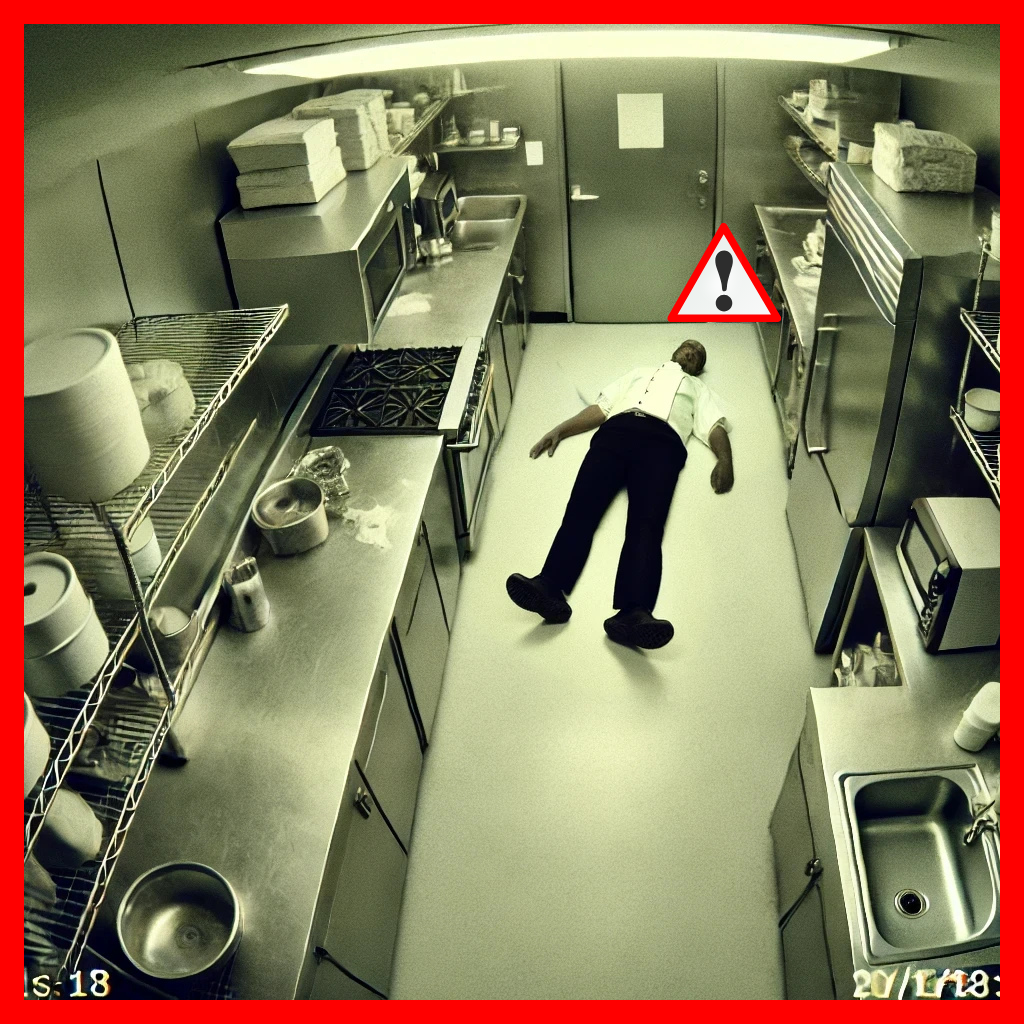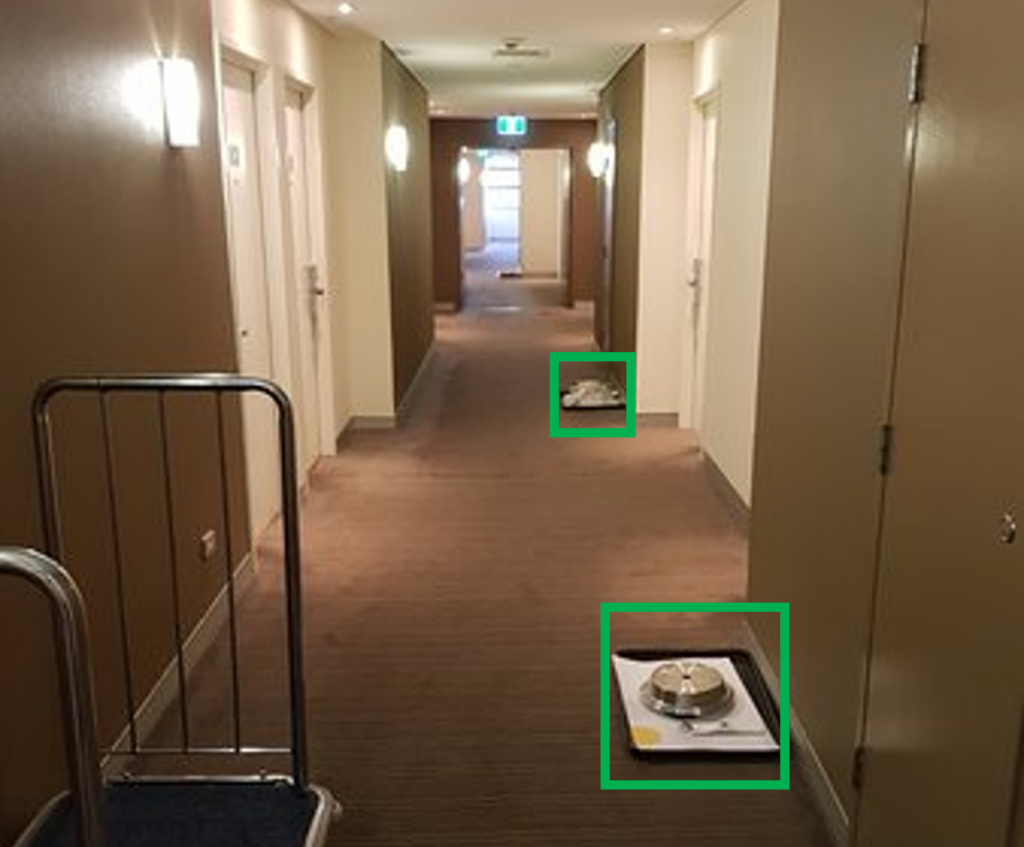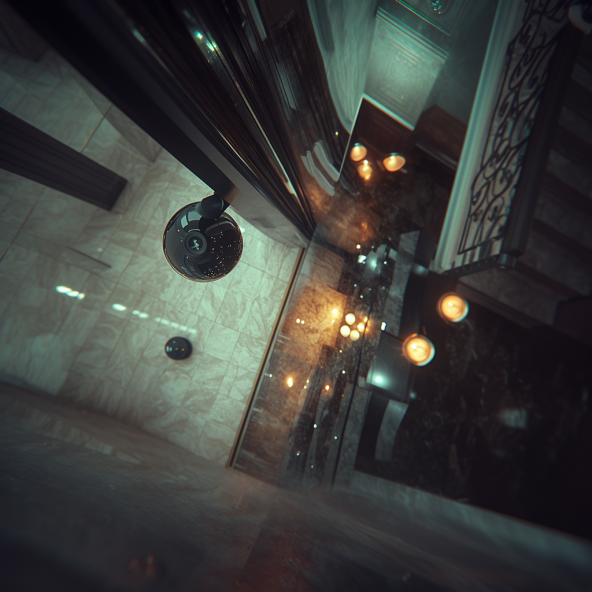Discover how hotels can leverage AI cameras to boost operational efficiency in five ways, from enhancing customer experience to improving safety and data analytics for informed decision-making.
The hospitality industry is at the forefront of technological evolution, leveraging innovations to redefine guest experiences and streamline hotel operations. In a landscape where personalization and efficiency are key, AI cameras have emerged as a versatile tool capable of transforming how hotels manage their spaces and interact with guests. These intelligent devices, driven by advancements in artificial intelligence (AI) and machine learning, have evolved from simple surveillance tools into multifunctional assets that provide actionable insights in real-time. By using AI cameras strategically, hoteliers can elevate service quality, ensure safety, and optimize resource allocation, ultimately enhancing the overall guest experience while driving operational excellence.
The Evolution of AI Cameras in Hospitality
From Surveillance to Intelligent Systems
Traditionally, cameras in hotels were primarily used for security purposes, acting as silent observers that recorded footage for retrospective analysis. However, the integration of AI has significantly broadened their scope. Modern AI cameras are now capable of processing and analyzing video feeds in real time, turning them into active participants in hotel operations. With the ability to identify patterns, recognize faces, and even predict potential issues, these cameras have become a central component in creating a seamless guest experience.
Advancements Over Time
- Machine Learning Integration: AI-powered cameras continually learn from data, becoming smarter and more intuitive over time. This allows them to detect anomalies, identify trends, and suggest actionable insights.
- Enhanced Processing Power: Through edge computing, AI cameras can now process data locally on the device itself, reducing the need to transfer large amounts of data to cloud servers, which decreases response times and improves data security.
- Improved Hardware Capabilities: With advancements in sensor technology, these cameras now feature ultra-high-definition imaging, thermal sensors, and enhanced low-light capabilities, making them more versatile for varied hotel environments.
Relevance to Hotels
For hotels, these advancements mean that AI cameras can do much more than enhance security; they can actively improve guest experiences and help manage hotel operations more efficiently. By turning video data into actionable insights, hotels can create personalized interactions and streamline their internal processes, giving them a competitive edge in delivering exceptional service.
Five Ways to Use Your Hotel’s AI Cameras
1. Enhancing Customer Experience
Personalized Services
AI cameras equipped with advanced facial recognition technology allow hotels to personalize guest interactions at a level previously unimaginable. For instance, upon a guest’s arrival, these cameras can instantly recognize them as a repeat visitor, prompting the system to adjust the room settings—such as lighting, temperature, and even their favorite music playlist—to their liking. This level of personalization makes guests feel valued and acknowledged, leading to higher satisfaction and loyalty.
- Seamless Check-In: AI cameras enable quick, contactless check-in by recognizing guests upon arrival, allowing them to bypass the front desk and access their rooms without keycards or paperwork.
- In-room Preferences: AI cameras can communicate with smart room systems to ensure that the environment is tailored to each guest’s known preferences from the moment they enter.
- Targeted Offers: Based on guest history and behavior patterns, hotels can offer personalized promotions and discounts, enhancing the likelihood of upselling amenities like spa treatments or dining experiences.

Queue Management
Long lines at check-in and check-out are a common pain point for guests. AI cameras can analyze real-time foot traffic in the lobby and automatically alert staff when queues start to form, ensuring additional personnel are deployed promptly to maintain smooth operations.
- Dynamic Resource Allocation: AI-based systems can predict peak times and allocate resources accordingly, reducing wait times and enhancing the guest experience.
- Integration with Mobile Apps: Guests can be guided to use mobile check-in options when lines are detected, offering a seamless and contactless experience.
2. Space Monitoring for Operational Efficiency
Occupancy Tracking
AI cameras play a crucial role in monitoring how different areas of the hotel are utilized throughout the day. By understanding the flow of guests and their behavior in communal spaces like lobbies, restaurants, and fitness centers, hotels can optimize their services and improve space management.
- Staff Deployment: Hotels can deploy cleaning and service staff more efficiently by knowing when areas like conference rooms or event halls are in use or when they are empty.
- Energy Management: AI cameras can automatically adjust lighting and HVAC settings based on room occupancy, leading to significant cost savings on energy bills without compromising guest comfort.
Resource Allocation
Knowing where guests spend most of their time allows hotels to make data-driven decisions about space utilization. AI cameras can help identify areas that are underutilized, providing insights that can lead to more profitable uses of space.
- Event Space Optimization: Hotels can adapt their event spaces based on real-time analytics to create configurations that enhance guest comfort and engagement.
- Redesign of Communal Areas: AI camera data can suggest improvements in layout design for high-traffic areas to create a more fluid and accessible guest experience.
Read this overview of how Neoma’s guest recognition solution leverages advanced facial recognition technology and automated guest insights to enhance personalized service, fostering meaningful connections and improving overall guest satisfaction in hospitality environments.
3. Enhancing Space Safety
Incident Detection
AI cameras are invaluable in enhancing safety within hotel premises by detecting incidents before they escalate. Equipped with behavioral analysis, these cameras can identify potential risks like unauthorized access or suspicious movements, triggering immediate alerts to the security team.
- Proactive Risk Management: Detecting spills, blocked exits, or potential hazards in real time allows hotels to take preventive action, ensuring guest safety at all times.
- Man-Down Detection: AI cameras can detect when a staff member or guest falls or becomes incapacitated, triggering immediate alerts to staff for swift assistance, which is especially useful in isolated or less-frequented areas of the hotel.
- Crowd Control: AI cameras can monitor crowd density in event areas and public spaces, alerting staff if overcrowding occurs, which is crucial for managing guest flow during large gatherings.

Emergency Response
In the event of emergencies, such as fires or medical incidents, AI cameras provide crucial data to guide emergency response teams, enhancing their efficiency in managing the situation.
- Dynamic Evacuation Plans: Cameras can analyze real-time movement to guide guests to the nearest and safest exit routes during an evacuation.
- Coordinated Response: By sharing live footage with first responders, hotels can ensure that assistance arrives faster and more accurately.
4. Streamlining Access Control
Facial Recognition for Secure Access
Using AI cameras for facial recognition ensures that only authorized personnel and residents have access to specific areas of the hotel or residential spaces. This technology enhances security measures while also offering convenience to staff and residents.
- Room and Facility Access Without Keycards: Staff and residents can use facial recognition for secure, hassle-free entry to restricted areas, eliminating the need for traditional keycards that can be lost or duplicated.
- Enhanced Security for Sensitive Areas: Automatically recognizing authorized personnel upon arrival ensures that only those with the proper clearance can enter secure zones, such as maintenance areas or service rooms.
Automated Entry Systems
Controlling access to sensitive areas, such as server rooms and financial offices, is crucial for maintaining hotel security.
- Time-Sensitive Access: Granting time-limited access to specific staff members based on their roles and shifts ensures that unauthorized individuals cannot enter secure areas.
- Comprehensive Security Logs: Keeping a detailed log of entries and exits aids in audits and investigations, providing transparency and accountability.
Find out more about how Neoma’s Unauthorized Persons Detection solution utilizes existing cameras for real-time facial recognition, enhancing security by identifying unauthorized individuals and integrating seamlessly with access control systems while ensuring GDPR compliance and privacy protection.
5. Staff Productivity and Workflow Optimization
Task Efficiency Monitoring
AI cameras can track the movement and efficiency of housekeeping, maintenance, and other operational staff, offering insights into task completion times and workflow bottlenecks.
- Optimizing Staffing Levels: By analyzing peak service times, hotels can adjust staff schedules to ensure the right number of employees are present to meet guest demand without overstaffing.
- Improving Task Allocation: Understanding which tasks take longer or are often delayed allows management to redistribute duties more effectively, ensuring smooth operations across all departments.
- Empty Tray Management: AI cameras can detect empty trays left in hallways or public areas, alerting staff to collect them promptly, which helps maintain cleanliness and improves the overall guest experience.

Resource Usage Insights
AI camera data can also be used to monitor resource utilization, helping hotels reduce waste and optimize costs.
- Energy and Supply Management: AI cameras can track the use of lighting, equipment, and consumables, providing insights that help reduce waste and improve energy efficiency.
- Maintenance Scheduling: Monitoring staff in real time ensures that equipment maintenance is performed as scheduled, minimizing downtime and extending the lifespan of assets.
Overcoming Limitations of AI Cameras
Data Security Concerns
Handling guest data responsibly is a top priority for hotels, as breaches can lead to loss of trust and regulatory penalties.
- Clear Consent Processes: Ensuring that guests are informed about how their data is collected and used, with options to opt-in or opt-out, is essential.
- Robust Cybersecurity Measures: Employing the latest encryption technologies to safeguard data from potential breaches.
- Edge and Cloud Computing Solutions: Utilizing a combination of edge computing and cloud services to enhance data security. Processing sensitive data locally on edge devices reduces the transmission of personal information over networks, while cloud platforms offer secure, scalable storage with advanced security protocols.
Feed Quality Issues
High-quality video feeds are critical for accurate AI analysis, but factors like bandwidth limitations and environmental conditions can pose challenges.
- Optimized Network Infrastructure: Investing in advanced network solutions to support high-definition video streaming without latency.
- Adaptive Imaging: Using cameras with capabilities to adapt to different lighting conditions ensures consistent feed quality.
- Edge and Cloud Processing: Implementing edge computing for real-time data analysis reduces latency and bandwidth usage. Cloud computing provides scalable resources for intensive processing tasks and long-term data storage, enhancing overall feed quality.
Camera Angle and Positioning
Strategic camera placement is essential to achieve maximum coverage, enhance functionality, and respect guest privacy within the hotel premises.
- Site-Specific Assessments: Conducting detailed evaluations to identify optimal camera locations and angles.
- Advanced Camera Models: Selecting cameras with wide-angle lenses, pan-tilt-zoom (PTZ) capabilities, or 360-degree views to cover larger areas effectively.
- Edge and Cloud Integration: Using cloud-based management systems allows for remote monitoring and adjustment of camera settings. Edge computing enables on-site processing for immediate data analysis, optimizing camera performance in real-time.
Best Practices for Implementing AI Cameras in Hotels
Staff Training
Equipping staff with the necessary skills to utilize AI camera technology effectively ensures that the system’s full potential is realized.
Guest Communication
Being transparent with guests about AI camera usage helps build trust and ensures a positive experience.
Continuous Evaluation and Improvement
Regularly reviewing and updating AI camera systems ensures they remain effective and aligned with the hotel’s objectives.
Final Thoughts: Embrace the Future of Efficiency with AI Cameras
AI cameras represent a game-changing technology for the hospitality industry, offering a combination of enhanced security, personalized guest experiences, and data-driven decision-making. By implementing these strategies, hotels can position themselves at the cutting edge of service excellence, ensuring they not only meet but exceed the expectations of today’s discerning travelers. Embracing AI-driven innovation now will lay the foundation for a smarter, more efficient future in hospitality.
Interested in learning more? Talk to Neoma Sales today.







